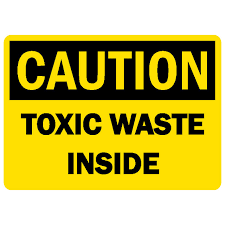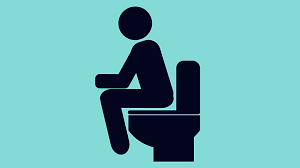How often do you have a bowel movement (poop, take a dump, drop kids off at the pool, boo-boo, make a stinky)? Take a moment and think about it. Ask yourself how many times have you crapped this week? Okay, what about today??
Trust, I get it, talking about bowel movements often makes people squeamish and uncomfortable. But for the sake of your health and for this post, let’s get a little uncomfortable. Especially since the CRAP inside of you can tell a lot about you – literally and figuratively. So for a moment, let’s put our feelings of embarrassment and discomfort to the side and talk about POO!!
What is poop (or poo, feces, crap, bm, #2, sh!#, dung)? Basically, it is waste that contains water, indigestible fiber, undigested food, sloughed off intestinal cells, living and dead bacteria, bile, and worn out red blood cells [thanks Natural Health Techniques for breaking poop all the way down]. Whatever your body does not process and use it get rid of it through defecation (the discharge of poop from the body). The urge to defecate or have a bowel movement is often strongest in the morning, as you are moving around and provoking movement in the large intestines. Now, if you have been reading my posts you know I am into TCM. According to this practice your large intestines are waking up and becoming active between 5 a.m. – 7 a.m. During this time one should drink about 16 oz. of water and walk around a little to get things moving, as this will aid in improving a sluggish colon. TCM encourages no consumption of caffeine, because it can be dehydrating and contribute to constipation, slowing down the colon.
 In the event you are not pooping on a regular bases, guess what is happening – wastes are sitting in your body. The longer wastes sit, the more toxic it becomes. The Active Health Care Center shared: When the colon is working properly, its peristaltic (muscular, wave like) motions move food through the system and eliminate unassimilated substances in the form of waste within 16-24 hours of eating. When one’s digestive tract is under active, it is likely that toxic wastes may be absorbed through the bowel wall and into the bloodstream. The blood then circulates these toxins to every part of the body and deposits some of them in tissues. And I think, without me saying it, you already know that is not a good thing.
In the event you are not pooping on a regular bases, guess what is happening – wastes are sitting in your body. The longer wastes sit, the more toxic it becomes. The Active Health Care Center shared: When the colon is working properly, its peristaltic (muscular, wave like) motions move food through the system and eliminate unassimilated substances in the form of waste within 16-24 hours of eating. When one’s digestive tract is under active, it is likely that toxic wastes may be absorbed through the bowel wall and into the bloodstream. The blood then circulates these toxins to every part of the body and deposits some of them in tissues. And I think, without me saying it, you already know that is not a good thing.
You have had a moment to reflect.![]() Do you recall when the last time was that you had a good, solid, full elimination? If not, let’s explore how we can change this narrative. Michael Greger, MD notes, A healthy colon starts with healthy bowel movements. High intake of plant fiber is needed for healthy bowel movements and may be associated with a decrease risk of cancer, heart disease, and numerous other chronic diseases. 1.) Increase your intake of fibrous plants, water, and healthy fats.
Do you recall when the last time was that you had a good, solid, full elimination? If not, let’s explore how we can change this narrative. Michael Greger, MD notes, A healthy colon starts with healthy bowel movements. High intake of plant fiber is needed for healthy bowel movements and may be associated with a decrease risk of cancer, heart disease, and numerous other chronic diseases. 1.) Increase your intake of fibrous plants, water, and healthy fats.
Animal products are acid-forming, mucous-forming, high in fat, devoid of fiber and low in water content; they require great amounts of energy to digest, and usually putrefy in the bowel, creating an overload of “unfriendly” bacteria and toxic byproducts. When the body is too acidic from acid-forming foods, it will not be able to heal IBD [gut related issues] until detoxification has occurred, Dr. David Klein. 2.) Decrease (ELIMINATE) animal products.
3.) Exercise. Exercise and diet can have a beneficial effect on microbial diversity, metabolic profile and inflammation, according to research done by physician-scientist, Fergus Shanahan.
These three things TOGETHER can contribute to improving your gut health. And for the record there are cleanses, pills, teas, and potions that can get things moving but what good are those things if you continue to put the same junk back in? That same CRAP that stops you, locks you and blocks you will never heal you…
Start with the basics – eat more fruits and veggies, drink water, get moving and educate yourself to improve your health. Oh, and get some of Young Living’s DiGize™. This is a proprietary blend of Young Living essential oils, a great mealtime companion and addition to your wellness regimen, in supporting the digestive system. Click here for info regarding how to purchase.
*Oh, and please be advised it is not cute or sexy to be constipated – Get that CRAP OUT!!!
The information shared in this article is for educational purposes. It is not to diagnose or treat any illness. As the reader please do your own research (reference the links included), in order to make informed decisions about YOUR health and wellness.
‘

Awesome article. It gave me detailed insight as to what’s going on inside there. A couple of years ago I started experiencing digestive problems. I increased my daily fruit and veggie intake, and then found out that my body really had a hard time with veggies like broccoli and cabbage. I cut those out and felt so much better. I also cut way down on my dairy intake. I was a cheese loving queen. Lol. Since making these changes, I go potty a lot more frequently. Also, I wanted to ask what TCM stood for?
Thank you! I am glad the post was helpful. It is interesting how our bodies respond to the foods that we eat. Reducing dairy is great for the reduction of inflammation throughout the body, which for some interferes with digestion (because the gut is inflamed). Question – how were you eating the broccoli / cabbage (raw, steamed, soups)?
TCM = Traditional Chinese Medicine